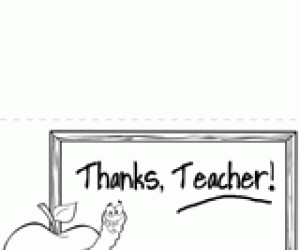
First of all, I believe that the percentage of students with special needs in a classroom should reflect the percentage of such children in the population of school district. Since it's unlikely that half the children in your town have LD, I am going to assume that this is some kind of special and incredibly well-supported classroom that parents of children with and without special needs are lined up to have their kids get into.
If this is really an inclusion class, and half of the students have specific learning disabilities, then I would hope that if the regular education teacher is not certified in both regular and special education, he/she at least has some familiarity and training in working with children's special needs (including the child with academic talents).
I would also assume that in this class with such a high percentage of students with special needs there is a full time, certified special education teacher in the class, which is team planned and team taught. If not, then I hope that there is, at least, a full time assistant teacher who is trained in learning disabilities (and who receives regular supervision and consultation from a trained special educator). If there is a staff ratio any lower than this, or any less qualified, I start to worry, and so should you.
Some may call me an idealist about this, but I am a long-time and ardent supporter of inclusion, if it's done right. I believe that in order for a classroom, grade level, school building or system to be truly inclusive, all children and their teachers must be provided with accommodations or services that are necessary to support success in a typical environment. For example, students who have cognitive limitations (for example, those with mental retardation) might be provided what is sometimes called a "parallel curriculum". This is the practice of creating activities that match the content or themes that the entire class is working on, but which are presented at a lower level of difficulty or abstraction. Students with learning disabilities, however, who do not have cognitive limitations (that is, they have at least average intelligence), need to have material delivered at the same level of difficulty as most other students, but it must be presented in a way that matches the individual student's learning style.
In my view, the best program for a child who is intellectually gifted or talented, is a well supported inclusion program. Many schools are frustrated in their efforts to meet the needs of children with exceptional talents, whether their strengths are academic, musical, interpersonal or in some other area. In a truly inclusive program, all children are exposed to a curriculum that challenges their abilities at any level, so this is the perfect environment for a gifted child. The curriculum enrichment that can more easily be a part of an inclusive classroom allows a student to go beyond the limitations of the traditional curriculum. If this student happens to be working with a group of other kids who may lack the organizational or reading skills to successfully handle the material (e.g., the children with ADHD or learning disabilities) both the social and academic benefits of such a practice become obvious. However, no child should be in an inclusion class simply to be a role model, at the expense of a good education.
Exemplary inclusive programs do not adopt a "one size fits all" approach, but provide a continuum of services available for all children, and practice what has been termed supported inclusion. Without a child-focused and flexible approach, what occurs is probably not inclusion, but rather delusion, intrusion, and confusion. When the latter happens, and a program inevitably falls apart, some folks come to the erroneous (forgive me) conclusion that inclusion is a bad thing. The problem is that inclusion has never happened in the first place.





